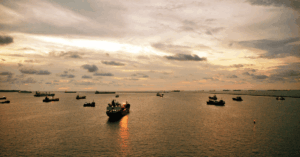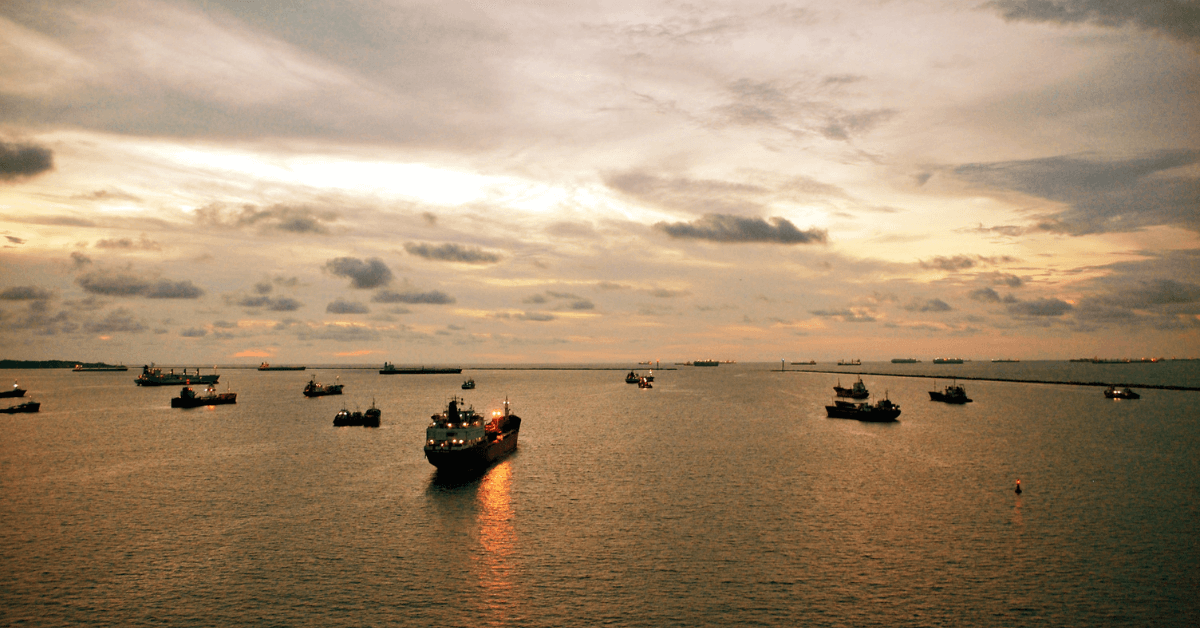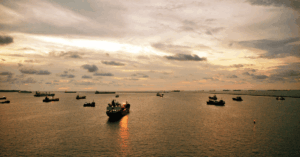
Canadian Coast Guard’s New Offshore Oceanographic Science Vessel Begins Sea Trials
June 19, 2025
ABS & HD Hyundai Collaborate To Develop AI-Powered Smart Shipyard
June 19, 2025

Tensions between Iran and Israel have forced commercial ships to avoid Iranian waters near the Strait of Hormuz, with many now sailing closer to Oman to reduce military risks, shipping sources said on Wednesday.
Maritime agencies have issued safety advisories asking ships to avoid Iran’s coastline in the Gulf of Oman and Strait of Hormuz. The decision comes amid escalating conflict between Israel and Iran, which has already entered its sixth day.
Iran has responded to Israel’s bombing campaign with deadly attacks across Israeli territory, while also blaming the United States for backing Israeli military operations.
Iran’s Supreme Leader Ayatollah Ali Khamenei, in his first remarks since the escalation, stated through a televised message that the country rejects U.S. President Donald Trump’s demand for an unconditional surrender.
In the past, Iran has warned it could shut down the Strait of Hormuz as a countermeasure to Western pressure. Any such closure would threaten the flow of global trade and heavily impact oil prices worldwide.
Currently, most commercial ships are sticking close to Oman’s shoreline for large parts of their journey towards the Strait. The Gulf of Oman, which is about 200 miles (320 kilometers) wide, contains international waters but is bordered by Iran, Oman, the United Arab Emirates (UAE), and Pakistan, each with a 12-mile territorial sea limit.
Ships must still pass through the Strait of Hormuz to enter the Gulf. The strait is only 21 miles (33 km) wide at its narrowest point, with two shipping lanes just 2 miles (3 km) wide each.
On Wednesday, ship-tracking data from MarineTraffic showed a cluster of vessels navigating closer to Oman, while Iranian-flagged ships mostly remained within Iran’s maritime territory.
Electronic interference with navigation systems has increased recently around the Strait of Hormuz and the wider Gulf region, raising further risks for commercial vessels transporting oil.
The region’s maritime threat level has now been raised to “elevated,” according to a recent advisory by the Joint Maritime Information Center (JMIC) under the U.S.-led Combined Maritime Forces. The group said that threats remain high as military strikes from both Iran and Israel continue.
In one of the latest safety measures, QatarEnergy has instructed oil tankers to stay outside the Strait of Hormuz and enter the Gulf only one day before their scheduled loading.
Sources familiar with the matter confirmed that the order was issued in response to the ongoing regional conflict. According to analysts, daily earnings for Very Large Crude Carriers (VLCCs), supertankers capable of carrying up to 2 million barrels of oil, have jumped significantly, from just over $20,000 per day last week to more than $50,000 a day this week.
Additionally, the Greek Shipping Ministry issued a formal notice urging vessels under the Greek flag to avoid Iranian waters in the Persian Gulf, the Strait of Hormuz, and the Gulf of Oman whenever possible.
The ministry said that in the past, there have been “violations of freedom of navigation and maritime safety” near Iran’s coastline, putting merchant ships at risk.
References: Reuters, cnbctv18
Source: Maritime Shipping News


